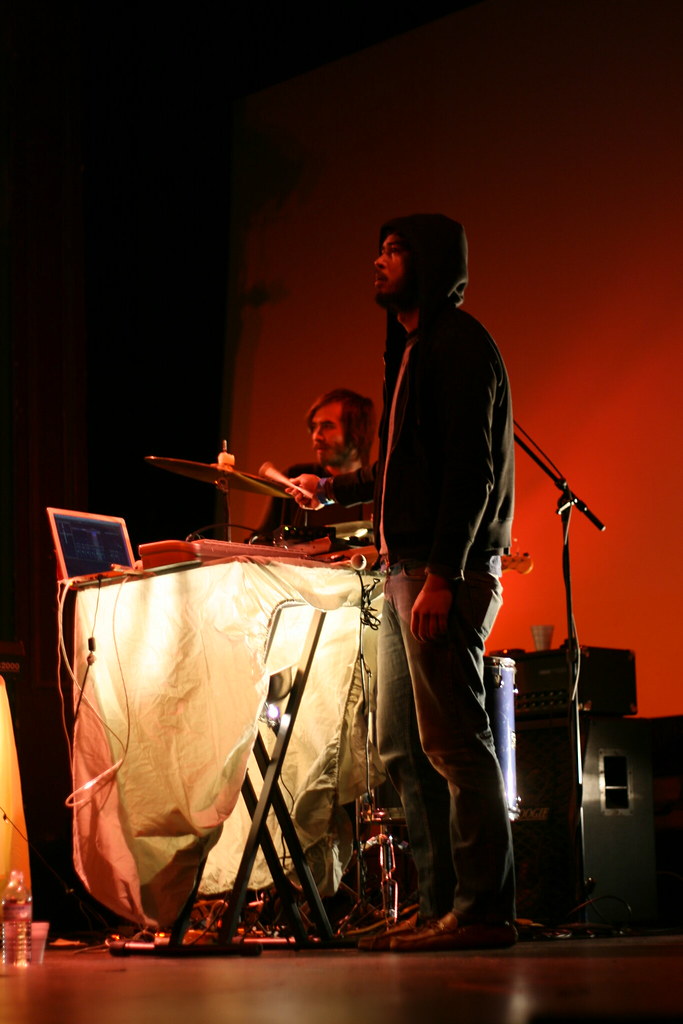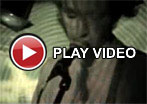To Kill A Petty Bourgeoisie: Destroy Yourself

Lucas Schleicher: Lets start with a little introduction. Who are you, where are you from, and where are you now?
Mark McGee: My name is Mark McGee and I am originally from Chesapeake, VA. Currently I live in Minneapolis, MN. I am in a band called To Kill A Petty Bourgeoisie [TKAPB] with my friend Jehna Wilhelm.
LS: Were either of you a part of other musical projects before TKAPB formed? What were they like?
MM: Before TKAPB I was in a band called Hertzog International Norfolk Jacket. It was like collage noise with a lot of cut up sounds. We used tapes and filters, and turntables. Before that I used to DJ and spent my time scratching records in my bedroom with friends.
LS: How did TKPAB form? What prompted you to start writing music with Jenha?
MM: We met in high school but never did music together then. She went to Governor's Magnet School, which is a school for the arts. There were just things we agreed upon musically, so we always stayed in contact. We attended Virginia Commonwealth University together and briefly played music together before she left for Paris.
TKAPB formed while she was in France studying. We would send WAV files and CDs back and forth. She would send me crude guitar recordings from France and I would send her noise and soundscapes. With the tracks she sent me I would layer sounds and sort of compose a song. The early TKAPB stuff was really noisey and hardly had any vocals. It was more sound collage work with a slightly poppy feel to it—definitely not as poppy as it is now—but it still had that element. After a year she came back to Richomond, VA and we started to play shows. We released A Companion for Afternoon Walks around that time through a local label called AEN, CD-R style. We released it before we knew how to play it live.
LS: And where did the band's name come from?
MM: The name is a play on "To Kill a Mockingbird." Both of us are from the middle class and at the time we thought it was clever. The name represents the destruction of yourself or, in this case, us: the petty bourgeoisie. Destroy and build, which plays into our music. The grammar is totally wrong too, but we like it. It means more and more to us each day. I think it's beautiful when written out and even more so in cursive.
LS: Why did you move to the Twin Cities from Richmond, VA?
MM: In 2004 we toured with friends of ours, Harm Stryker. On this tour we played Minneapolis. Freedom From, a label based in Minneapolis put the show on. We fell in love with the city and its local music scene. Lucky enough, Jehna's parents had just moved to the burbs there, so in a sort of easy transition we moved and lived with them until we found a place in the Twin Cities.
LS: What's it like being part of a band in Minnesota? Plenty of great groups, past and present, hail from different parts of that state. Is there something special about it that precipitates great music? Maybe the musical community is particularly supportive in a special way?
MM: Minnesota is nice. Haha. It has a lot of different things going on, musically. I mean, it does have a great history of music, but it also has a lot of great things going on now, too. I think the location and the size has a lot to do with the music scene here. It is sort of cut off from the rest of the country, but is in tune with it as well. It's not too big, where shows get lost with the flurry of other shows going on the same night, nor is it too small where music acts get boring or all the bands sound the same. There seems to be a new venue popping up all the time and new bands jumping up.
It is competitive, but not malicious or catty. Bands seem to feed off each other here. Local acts seem to draw more people than touring acts. And if you are touring band, you should definitely consider using a local act to open your show based on that fact alone. Maybe the weather helps us, too. The winters are really tough, so people tend to stay in and make music. In the springtime you will see 20 new bands pop up. Some of them manage to stay together and make it around to autumn before they break up.
LS: Are there a lot of bands flying under the radar there? Any that have caught your ear?
MM: Oh yeah. My favorites right now are The Shahs, Skoal Kodiak, Brute Heart, Vampire Hands, Gay Beast, Whitesand/Bandlands, Seawhores, Arctic Universe. There's so many. [They're] all doing some amazing things.
LS: How did your relationship with Kranky begin?
MM: In 2006 we toured with Cristal, which is (Labradford/Aix Em Klemm/Breadwinner member) Bobby Donne's project. We played a loft party in Chicago and met Joel from Kranky. We exchanged numbers and I gave him the Retire Early EP we had just finished. He called me the next day. We planned out a record and he mailed us the contract. In short, that's kind of how it happened.
LS: Who is responsible for The Riley Bushman Recordings & Archives? What is your connection to it?
MM: Well, Riley Bushman is. He started it and funds it. My friend Andy Heater and myself help manage it. We use it to release material other record labels won't. Mostly of our own. Now we plan to release projects from some acts we know and love, too. The label started in desperation to put out our own records. But, the label has been around since the early 1900s apparently. I haven't heard all of the old recordings, but what I've heard sounds pretty amazing. Maybe we will re-release some of the old archives in the future.
LS: Does the label have anything in the pipe right now? Can you give us some details about any of them?
MM: Right now we have a 7-inch from a band called Whitesand/Badlands coming out in the fall. They know how to use rhythm and timing exquisitely and still come off as a little ghostly. [They're] spooky at times. It is really beautiful. After that we plan to put out The Shahs' LP. He is a one man band that uses mouth beats and a cheap Yamaha keyboard to make beach, no-fi, fuzzy pop songs, with a hint of Phil Collins. So good. He has been getting some attention in the cities here.
LS: Your first record, The Patron, was billed as a concept album. Your newest record, Marlone, lists Marlone as though he/she/it were a contributor, which makes it hard not to think of he/she/it as a character. Is your latest release a concept album, too? Who or what is Marlone?
MM: It's funny that The Patron was listed as a concept album. It wasn't our complete intention to describe it that way. We wanted to tell a story, which we have been doing since we started. But to call it a concept album was a bit too much. The Patron was a love story, like a beauty and the beast idea. I think we did a good job at portraying that with sound alone, whether the vocals came across or not. In most cases [they] didn't. And we were told that in the negative reviews of the album, that we concentrated on the concept rather than the music. Marlone might be a character. With this album we wanted to create an album that breathed more, a more human element, and so we used a lot of non-electronic instruments. We also wanted to see if we could write actual pop songs. "In Peoples' Homes" was an attempt at that.
Ma



